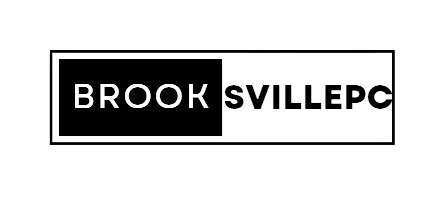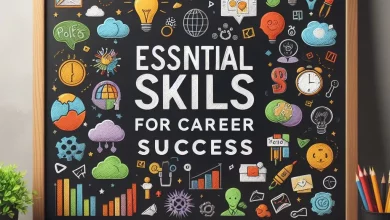Strategies for Career Success
In today’s competitive and ever-evolving job market, achieving success in one’s career requires more than just academic qualifications. It demands a strategic approach, continuous learning, and effective networking. In this article, we will explore fifteen essential strategies that can pave the way for a successful and fulfilling career.
I. Introduction
A. Importance of Career Success
Career success goes beyond a hefty paycheck; it encompasses personal growth, job satisfaction, and the achievement of professional goals. Understanding the significance of a successful career is the first step towards crafting a path to prosperity.
B. Overview of Strategies
Before delving into specific strategies, it’s crucial to have a broad understanding of the areas we’ll be exploring. From self-discovery to effective communication and leadership skills, these strategies form a comprehensive guide to career success.
II. Self-Discovery
A. Identifying Strengths and Weaknesses
Knowing oneself is the foundation of a successful career. Identifying strengths allows individuals to leverage them, while acknowledging weaknesses opens the door for improvement.
B. Setting Personal and Professional Goals
Setting clear and achievable goals provides direction and motivation. Both short-term and long-term goals contribute to a sense of purpose in one’s career journey.
III. Skill Development
A. Continuous Learning and Adaptation
The job market is dynamic, requiring individuals to adapt continuously. Investing in learning and staying updated with industry trends is key to staying competitive.
B. Acquiring New Skills Relevant to the Industry
Identifying the skills in demand and acquiring them ensures relevance in a rapidly changing professional landscape.
IV. Networking
A. Building a Strong Professional Network
Networking is a powerful tool for career success. Building meaningful connections with professionals in the industry opens doors to opportunities, mentorship, and collaboration.
B. Leveraging Social Media for Career Advancement
In the digital age, social media platforms play a crucial role in professional networking. Utilising these platforms strategically can enhance visibility and create valuable connections.
V. Personal Branding
A. Crafting a Unique Personal Brand
A distinct personal brand sets individuals apart in a crowded job market. It involves showcasing skills, values, and achievements in a way that leaves a lasting impression.
B. Online Presence and Reputation Management
Maintaining a positive online presence is essential. Employers often explore online profiles; thus, managing one’s digital reputation is paramount.
VI. Effective Communication
A. Developing Strong Communication Skills
Clear and effective communication is a fundamental skill. From emails to presentations, mastering communication contributes to professional success.
B. Presentation and Public Speaking
Confidence in presenting ideas and speaking in public situations enhances credibility and opens avenues for career advancement.
VII. Time Management
A. Prioritising Tasks and Setting Deadlines
Effective time management ensures productivity. Prioritising tasks and setting realistic deadlines prevent procrastination and enhance efficiency.
B. Avoiding Procrastination
Procrastination is a common challenge. Overcoming this habit is crucial for meeting goals and deadlines.
VIII. Mentoring and Coaching
A. Seeking Guidance from Experienced Professionals
Mentorship provides valuable insights and guidance. Seeking mentorship opportunities helps navigate challenges and accelerates professional growth.
B. Being Open to Mentorship Opportunities
Being receptive to mentorship not only benefits the mentee but also fosters a culture of knowledge exchange in the professional sphere.
IX. Embracing Challenges
A. Overcoming Obstacles in the Career Path
Challenges are inevitable. The ability to overcome obstacles with resilience and determination is a hallmark of a successful career.
B. Learning from Failures and Mistakes
Failures are stepping stones to success. Learning from mistakes is an integral part of personal and professional development.
X. Professional Development
A. Attending Workshops, Seminars, and Conferences
Continual learning through workshops and conferences broadens knowledge and keeps professionals abreast of industry advancements.
B. Pursuing Additional Certifications
Obtaining certifications enhances credibility and demonstrates commitment to professional growth.
XI. Work-Life Balance
A. Importance of Balancing Personal and Professional Life
A healthy work-life balance is crucial for overall well-being. It enhances job satisfaction and prevents burnout.
B. Strategies for Maintaining a Healthy Work-Life Balance
Implementing practical strategies, such as setting boundaries and taking breaks, contributes to maintaining a healthy work-life balance.
XII. Adaptability
A. Being Flexible in a Dynamic Work Environment
Adaptability is a sought-after trait. Flexibility in the face of change positions individuals as valuable assets in any organisation.
B. Embracing Change and Innovation
Embracing change fosters innovation. Individuals who welcome and adapt to change contribute positively to organisational growth.
XIII. Leadership Skills
A. Developing Leadership Qualities
Leadership skills go beyond managerial roles. Developing qualities like decision-making and teamwork enhances one’s ability to lead effectively.
B. Leading by Example
Leading by example inspires others. Demonstrating leadership qualities in everyday actions fosters a positive work environment.
XIV. Seeking Feedback
A. Importance of Feedback for Growth
Constructive feedback is a tool for improvement. Seeking feedback from colleagues and superiors aids in personal and professional development.
B. How to Accept and Implement Constructive Feedback
Accepting feedback graciously and implementing suggested improvements contributes to ongoing growth and success.
XV. Conclusion
In conclusion, a successful career is the culmination of strategic planning, continuous learning, and effective interpersonal skills. By embracing these fifteen strategies, individuals can navigate the complexities of the professional world and achieve sustained success.
FAQs
- How long does it take to see the impact of these strategies on one’s career? The impact varies, but consistent application of these strategies can yield noticeable results within months.
- Is networking more effective online or offline? Both are valuable, but online networking allows for a broader reach, while offline connections can be more personal.
- What certifications are most beneficial for professional development? Certifications vary by industry, but those recognized by reputable organizations in your field are generally beneficial.
- How can one maintain work-life balance in a demanding job? Setting boundaries, prioritising self-care, and effective time management are key to maintaining work-life balance.
- Is it ever too late to start implementing these strategies in one’s career? It’s never too late! These strategies are adaptable to any career stage and can bring positive changes at any point.





